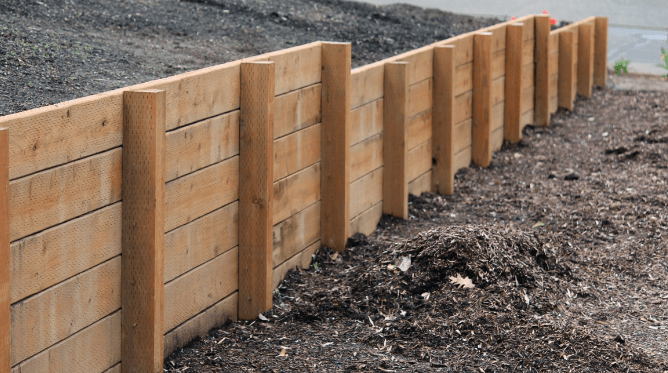Resolving Retaining Wall Disputes: Strategies for a Positive Outcome

Queensland real estate offers a diverse range of opportunities in stunning locations, from the vibrant city of Brisbane to the idyllic coastal areas like the Gold Coast and Sunshine Coast. These regions are known for their natural beauty and thriving communities. So, whether you’re looking for luxurious beachfront properties or modern urban apartments, Queensland’s real estate market has something to suit every taste and lifestyle. Meanwhile, few things are as crucial as retaining walls when it comes to property and land. They serve as vital structures to prevent soil erosion, maintain property boundaries, and create level surfaces. However, like any construction project, issues can arise, leading to disputes that require resolution. So, below are some effective strategies to navigate retaining wall disputes, and how enlisting the expertise of a retaining walls lawyer in QLD can be your key to a positive outcome.
Understanding the Importance of Retaining Walls
Retaining walls are more than just functional structures; they are integral to preserving the stability and aesthetics of your property. Whether you’re a homeowner or a developer, recognising the significance of these walls is the first step in resolving any disputes that may arise.
Identifying Common Retaining Wall Disputes
Before delving into strategies for resolution, let’s look at some common disputes related to retaining walls:
Property Boundaries: Often, disputes arise when there is uncertainty about where one property ends and another begins. Retaining walls can act as property boundaries, and disagreements can emerge regarding their placement.
Structural Integrity: Issues concerning the structural soundness of retaining walls can lead to disputes. Cracks, tilting, or failures in the wall’s function can be contentious matters.
Permit Problems: If a retaining wall is constructed without the necessary permits or approvals, it can lead to legal issues.
Read also Navigating the AI Landscape: Pros and Cons of Artificial Intelligence in Daily Life
Strategy 1: Open Communication
In any dispute, communication is key, so engage in open and respectful dialogue with your neighbours or the party involved in the dispute. Share your concerns, listen to theirs, and work together to find a solution that benefits all parties.
Strategy 2: Seek Mediation
If direct communication fails to resolve the issue, consider mediation. A trained mediator can facilitate discussions, helping both parties come to a mutually agreeable resolution. Mediation is often a less adversarial and more cost-effective option than litigation.
Strategy 3: Consult with a Retaining Walls Lawyer
Sometimes, disputes may reach an impasse, and legal expertise becomes necessary. As such, consulting with a retaining walls lawyer is a prudent step. These legal professionals specialise in property disputes, ensuring you have someone well-versed in local laws on your side.
The Role of a Retaining Walls Lawyer
A retaining walls lawyer in QLD plays a crucial role in dispute resolution. They can:
Provide Legal Advice: A lawyer can assess the situation, provide legal guidance, and explain your rights and responsibilities.
Negotiate on Your Behalf: Your lawyer can engage with the opposing party, representing your interests and working towards a resolution.
Prepare Legal Documents: In case a formal agreement is reached, your lawyer can draft the necessary legal documents to solidify the terms.
Advocate in Court: If a dispute escalates to litigation, your retaining walls lawyer will advocate for your case in court, striving for a favourable outcome.
Conclusion
Retaining wall disputes can be emotionally charged and financially draining. However, by understanding the importance of retaining walls, identifying common disputes, and employing strategies such as open communication, mediation, and seeking the counsel of a retaining walls lawyer in QLD, you can navigate these challenges with a greater likelihood of achieving a positive outcome. Remember, resolving disputes amicably whenever possible is not only cost-effective but also ensures better neighbourly relations and peace of mind.



